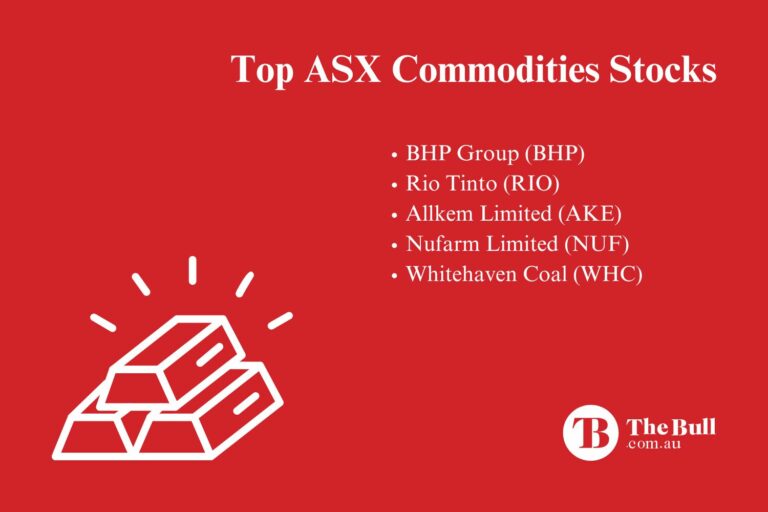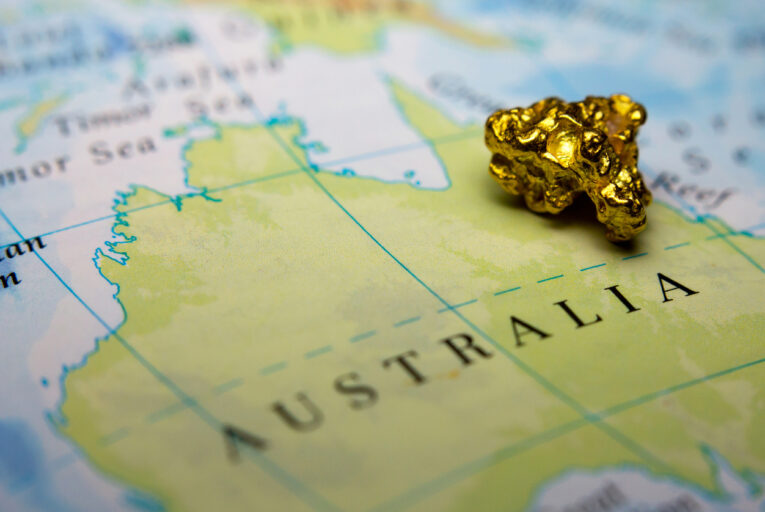Commodities are a very popular investment in Australia. If you’re an Australian resident you may already know that the Australian economy is highly dependent on this asset class. Trading commodities can be a very profitable activity so in this article we will explain everything you need to know to start trading commodities in Australia.
What are Commodities?
What comes to mind when you hear the word commodity? If raw materials or resources to build other things are your first thoughts, then you are like the majority of the general public. However, the word commodity is actually a fairly loose term. Hard commodities are natural resources that are usually extracted or mined, while soft commodities refer to agricultural products such as livestock, wheat, corn sugar and pork bellies. Regulators in several markets now consider digital cryptocurrencies, which have gained popularity over the past decade, as commodities.
Trading commodities is nothing new. Markets sprang up centuries ago to protect buyers and producers from chaotic price swings that can result from a host of factors, including the weather, drought, earthquakes, floods, insects and pestilence, and geopolitical strife. These hedging activities can be very complex, but beginner and veteran traders need not be concerned. If you are considering trading commodities in Australia, there are many ways to do this that are straightforward and beginner-friendly.
How are Commodities Traded?
The business aspect of trading commodities is often performed in markets that the average trader would never be able to access. These markets require special permissions or a brokerage account that is only reserved for very wealthy entities. There is a physical market where possession of the commodity can occur or a derivatives market – i.e., futures, forwards and options – where the instruments use the physical ‘spot’ market as its underlying asset.
However, brokers have addressed ordinary consumers’ demand to trade commodities by creating a variety of methods that do not present the risk of having to take delivery of, say, a ton of pork bellies:
Top Australian Brokers
- Pepperstone - Trading education - Read our review
- IC Markets - Experienced and highly regulated - Read our review
- eToro - Social and copy trading platform - Read our review
- CFDs: Traders are now familiar with contracts for difference (CFDs) as a simple and easy way to speculate on the direction of commodity prices.
- ETFs: In many cases, exchange-traded funds (ETFs) have been created to enable trading in corn, sugar, gold, silver and a multitude of other commodities, as if you were buying or selling stock.
- Stocks: If you do not wish to trade a commodity from a direct perspective, there is also another option. There are several large publicly traded stock companies that earn their living from mining or delivering these materials to the market. Stock prices for these various companies often correlate directly with the price action for the respective commodity.

The Benefits of Trading Commodities
When it comes to commodities trading, Australia-based traders should know about the various ‘pros’:
- Broad diversity of asset choices: For those wanting to trading commodities, Australia offers broad availability. Depending on your choice of broker, you may be able to trade agricultural goods, metals of a variety of types, energy in the form of natural gas or crude oil, digital assets in the form of cryptocurrencies, and even take a bet on environmental instruments designed to track trading in non-tangible energy credits. It is helpful to review the detailed offerings of a broker before choosing your specific commodity of interest.
- Short-term profits are possible: Price movements for these assets can help to generate short-term profits, but timing your buy and sell is important.
- Can provide a hedge against inflation or currency devaluations: Wise investors also use commodities as a hedge against inflation or when the US dollar falls in value. Prices for commodities can increase greatly under both circumstances, and Bitcoin and gold have actually been used as a hedge to protect against declines in USD price points.
The Drawbacks of Trading Commodities
There are also a number of ‘cons’ to be aware of:
- High price volatility: Prices for commodities tend to be very volatile, which is the primary reason why markets arose to enable hedging commodity positions.
- Prices may decline for long periods of time: Some commodities can sustain long periods of continuing price declines. Risks in this asset class can be severe. Education and awareness are key factors for trading success.
- No independent income stream: Unlike dividend stocks, commodities do not have a recognisable income stream. When holding positions in these assets, your potential for gain or loss is based purely on price movements in the market.
- Having to take delivery of a commodity: The biggest con all is if you have to take delivery of a commodity based upon an expiring option contract. One exception may be to buy gold bullion and put it in storage, but you will also incur storage fees. Your broker, however, will protect you from ever having to take delivery, as long as you trade in CFDs, ETFs or shares in a publicly traded company devoted to commodity production.
Choosing a Commodities Broker
Finding a safe and secure commodities broker to service your needs is paramount for your success in this highly volatile arena. The first factor is regulatory oversight, in Australia brokers are regulated by the Australian Securities and Investments Commission (ASIC). Make sure that your choice of broker complies with a respected regulatory agency.
The second factor relates to the portfolio offering of your broker. Many brokers claim to offer trading in commodities, but their asset choices may be severely limited. Review the commodities that are offered before making a final decision on a regulated broker.
In order to properly serve its commodities market, Australia has attracted a community of safe and secure brokers. Here are six variables to consider:
- Regulation: Mentioned above, but we repeat it here for emphasis.
- Breadth of product offering: Once again, ensure that your intended broker offers the commodities that you wish to trade. Not all brokers excel in this area.
- Fees and spreads: Verify that prices for trading commodities are acceptable to you.
- Leverage: Can you get more ‘bang for your buck’ with this broker? Are leverage limits acceptable, along with low margin requirements?
- Trading platform: Sign up for a free demo account and give the trading platform a test run. Is it user-friendly? Are its features to your liking?
- Mobile app: Trading commodities is high risk due to price volatility. You will want to be able to modify your positions wherever you might be. A strong mobile app is preferred.
Commodity Trading Strategies
All commodities are known to have specific lifecycles, which can influence price behaviour. It is wise to be aware of the factors that can impact a commodity’s prices before trading it. Due to the high risk involved, it is best to risk only capital that you can afford to lose, while employing risk management techniques to protect against volatile price movements in the market.
You must, however, stick to a strategy that you have tested and fine-tuned for real-time use. There are many strategies, but most depend upon technical indicators to guide you when to buy or sell and where to place stop-loss orders. Moving averages, the Relative Strength Index (RSI), and the Commodity Channel Index (CCI) are good indicator choices. The Average True Range (ATR) indicator is useful for placing stop-loss orders at a reasonable distance from entry.
Strategies include these three possibilities:
- Range trading: Trade based on prices bouncing between a defined range. Bollinger Bands are useful in this strategy.
- Breakout trading: Take a position when a strong trend develops, and let the trend be your friend. Trading in gold often follows this strategy.
- Trading based on fundamentals: Positions tend to benefit from long-term forces in the marketplace, requiring patience and additional research.
Concluding Remarks
If you wish to trade commodities, Australia is known for its exports of raw materials, including iron ore, gold, natural gas and crude oil. It makes perfect sense that Australian residents should benefit from this activity by trading this asset class. It can be exciting, challenging and potentially profitable. Several ways exist for beginner and veteran traders to trade commodities, but it is vital that you choose a safe and secure broker that can offer the commodities you want to trade in the way that you want to trade them, and at terms that are acceptable to you.
In this article, we have explained everything you need to know to trade commodities in Australia, including a review of the asset class, how to find a suitable broker, and possible trading strategies you can use. After selecting your broker, practice trading commodities in a virtual setting. Learn the nuances of your chosen commodities, and fine-tune your strategy before putting any capital on the line. Be patient, stick to your plan, and above all, enjoy your commodity trading experience.
Commodity Trading FAQs
What Are Commodities?
Commodities are naturally occurring raw materials or goods. These natural resources are often used in the manufacture of other goods and products. The price of commodities change according to supply and demand. This makes them a popular type of asset with traders looking to make a profit.
How to Trade Commodities
There are several different ways to trade commodities, from futures contracts and CFDs to commodities stocks and ETFs. The majority of these methods, except buying the physical commodity, will require a broker. You will first need to do some research into which commodities you wish to invest in. You will then need to consider how to invest in your chosen commodity. For example CFDs are better suited to short-term trading. For longer term investing it may be better to look at commodities stocks and ETFs. You should also have a risk management plan in place to ensure you are not risking more than you can afford to lose.
Can I Start Trading Commodities with $100?
Yes, it is possible to start trading commodities with $100. Many brokers will have minimum deposit amounts of $100 or less, allowing you to get started trading commodity CFDs, futures and options with just $100.
What Are Commodities Stocks?
Commodities stocks are companies that are involved in the extraction and processing of commodities. The price of their shares is therefore linked to the price of the commodity. For example mining companies involved in the extraction of raw materials like lithium and copper will make more profit as the price of these commodities increases, and less profit as the price falls.
What Are The Main Types of Commodities?
Commodities are split into two broad categories – hard commodities and soft commodities. Hard commodities include materials that must be mined or extracted, such as gold, oil and copper. Soft commodities include resources that must be grown such as cotton, wheat and livestock.






